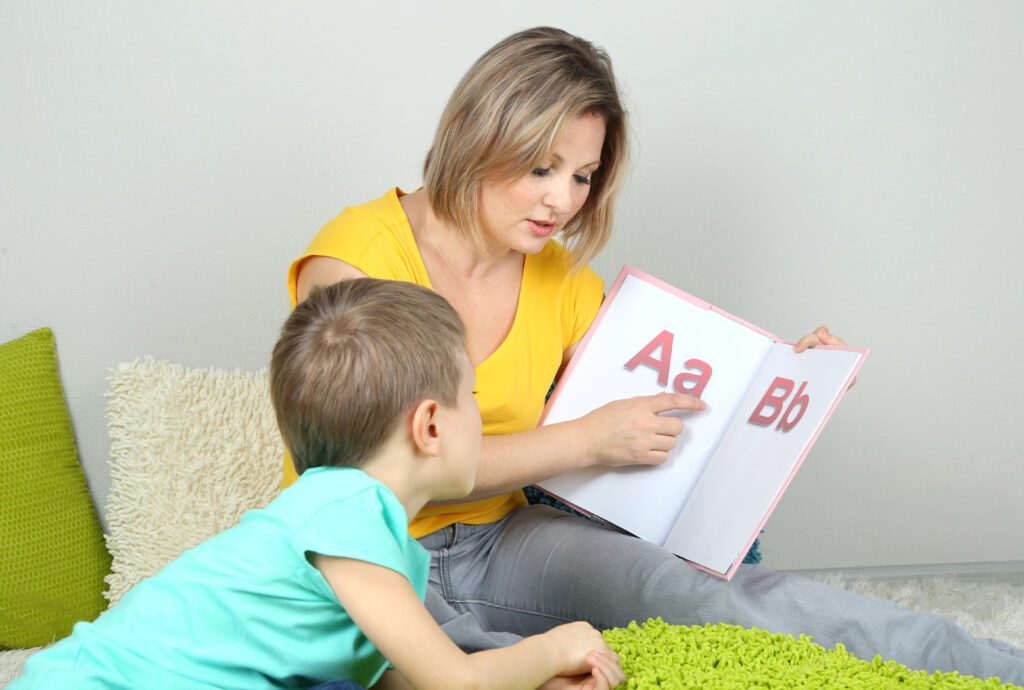
The Benefits of Speech Therapy for Children: A Parent’s Guide
Every child deserves the ability to communicate effectively. For some, speech and language development happen naturally, but for others, it may require professional support. Speech therapy for children is a vital tool that helps improve communication skills, social interactions, and academic performance. Whether your child struggles with pronunciation, comprehension, or social communication, speech therapy can offer life-changing benefits.
In this guide, we’ll explore what speech therapy is, how to recognize if your child needs it, the benefits of therapy, and how parents can support their child’s speech development at home.
What Is Speech Therapy for Children?
Speech therapy is a specialized treatment aimed at helping children overcome communication challenges. It is conducted by Speech-Language Pathologists (SLPs) who assess, diagnose, and treat speech, language, and oral-motor disorders.
How Speech Therapy Works
Speech therapy sessions are tailored to the child’s specific needs and may include:
- Speech articulation exercises to improve pronunciation.
- Language intervention activities to enhance vocabulary and grammar.
- Oral-motor therapy for children with swallowing and feeding difficulties.
- Social communication training for children struggling with interaction.
Sessions may be conducted in private clinics, schools, or via teletherapy, depending on the child’s needs.
Signs Your Child May Need Speech Therapy
Recognizing the signs early can make a significant difference in your child’s communication development. Below are some common indicators that a child may benefit from speech therapy.
Common Signs of Speech and Language Delays
- Limited vocabulary or inability to form simple sentences by age 2.
- Struggling with pronunciation or unclear speech by age 3.
- Difficulty following instructions or understanding questions.
- Lack of social communication skills, such as making eye contact or taking turns in conversation.
- Repeating sounds (stuttering) or speaking in a robotic tone.
When to Seek Professional Help
If your child:
- Is not speaking by 18 months or has fewer than 50 words by age 2.
- Is difficult to understand even by family members at age 3.
- Shows frustration due to communication difficulties.
- Avoids speaking or socializing with peers.
Consulting a speech therapist early can lead to better long-term outcomes.
Key Benefits of Speech Therapy for Children
Speech therapy for children provides more than just improved speech—it fosters confidence, social development, and academic success. Children with speech and language challenges often struggle to express themselves, leading to frustration, social withdrawal, or difficulties in school.

Early intervention with speech therapy can help them overcome these challenges and thrive in various aspects of life.
Improved Communication Skills
Clear communication is essential for a child’s success, both academically and socially. Speech therapy for children helps improve language development and articulation, allowing children to express their thoughts and emotions more effectively.
- Enhanced pronunciation and speech clarity – Children struggling with specific sounds (such as “r” or “s”) learn proper tongue placement and articulation techniques.
- Expanded vocabulary and sentence structure – Therapists use engaging activities to help children build a richer vocabulary and form complete, meaningful sentences.
- Better listening and comprehension – Speech therapy teaches children how to process and respond to verbal instructions, improving their ability to follow directions at home and in school.
By refining communication skills, children gain confidence and feel more understood by peers, teachers, and family members.
Better Social Interaction and Confidence
Many children with speech or language disorders find it difficult to engage in conversations, leading to isolation or anxiety in social settings. Speech therapy for children plays a critical role in helping them develop essential social skills.
- Improved conversational turn-taking and eye contact – Therapy teaches children how to engage appropriately in conversations.
- Understanding social cues and emotions – Speech therapists help children interpret tone, facial expressions, and gestures.
- Boosted self-esteem – When children can communicate effectively, they feel more confident participating in group activities and making friends.
Improving social communication skills helps children form meaningful relationships and navigate social environments with ease.
Academic Readiness and Success
Language and literacy skills are deeply connected, making speech therapy a valuable tool for preparing children for school.
- Stronger reading and writing abilities – Speech therapists help children recognize letters, sounds, and patterns in words.
- Better comprehension and problem-solving – Understanding and following instructions becomes easier, reducing frustration in learning activities.
- More engagement in classroom discussions – Children with stronger verbal skills feel more confident answering questions and expressing ideas.
Support for Feeding and Swallowing Difficulties
For children with oral-motor challenges, speech therapy can also address issues related to feeding and swallowing.
- Strengthens muscles used for eating and drinking – Beneficial for children with weak oral muscles or coordination difficulties.
- Reduces sensory aversions to certain food textures – Helps children feel more comfortable with various foods.
- Improves overall feeding habits – Making mealtimes easier and stress-free.
With the right support, speech therapy for children enhances their ability to communicate, build relationships, and succeed academically.
What to Expect in Speech Therapy Sessions
Many parents wonder what happens during a speech therapy session. Understanding the process can help ease concerns and set realistic expectations.
Initial Assessment and Goal Setting
- The SLP evaluates the child’s speech and language abilities.
- A customized therapy plan is developed, outlining short- and long-term goals.
- Parents receive guidance on supporting speech development at home.
Common Speech Therapy Techniques
- Articulation Therapy: Exercises to improve pronunciation.
- Language Intervention: Activities to expand vocabulary and comprehension.
- Oral-Motor Exercises: Strengthening mouth and tongue muscles for speech clarity.
- Play-Based Therapy: Games that encourage verbal communication in a fun way.
Role of Parents in the Therapy Process
- Encouraging speech exercises at home.
- Reinforcing progress through praise and patience.
- Collaborating with therapists to track improvements.
Finding the Right Speech Therapist for Your Child
Choosing the right speech therapist is crucial for effective treatment.
Qualifications to Look For
- Certified Speech-Language Pathologist (SLP) with pediatric experience.
- Specialization in conditions like autism, apraxia, or fluency disorders.
- Positive reviews and recommendations from other parents.
Where to Access Speech Therapy Services
- Private Clinics: One-on-one therapy with tailored treatment.
- School-Based Programs: Free or low-cost therapy for eligible students.
- Teletherapy: Online speech therapy sessions for convenience.
Check with your pediatrician or local speech therapy organizations to find qualified professionals.
How Parents Can Support Their Child’s Speech Development at Home

While speech therapy plays a crucial role, parents can reinforce learning at home with simple, everyday activities.
Everyday Activities to Boost Speech Skills
- Reading Aloud: Encourages vocabulary expansion and comprehension.
- Singing and Rhyming: Helps with speech rhythm and pronunciation.
- Interactive Storytelling: Engages children in using expressive language.
Creating a Language-Rich Environment
- Engage in daily conversations with your child.
- Ask open-ended questions to promote expressive speech.
- Reduce screen time and encourage face-to-face communication.
Consistency and patience are key in helping your child develop strong speech and language skills.
Conclusion
Speech therapy for children is a powerful tool that can enhance communication, social skills, and academic performance. Identifying the need early and seeking professional support can lead to lifelong benefits for your child.
By working closely with speech therapists and reinforcing progress at home, parents can play an active role in their child’s speech and language development. If you’re seeking personalized speech therapy solutions for your child, consider reaching out to Achievement Balance. Our dedicated team is committed to fostering effective communication skills, enhancing social interactions, and supporting academic success for every child.
We offer tailored speech therapy programs designed to meet your child’s unique needs.
Frequently Asked Questions (FAQs)
How long does speech therapy take for a child?
The duration of speech therapy varies depending on the child’s needs. Some children improve within a few months, while others may require therapy for several years.
Can speech therapy help with a lisp?
Yes, speech therapy effectively addresses lisps by teaching children proper tongue placement and articulation techniques.
At what age should speech therapy start?
Early intervention is best. Children as young as 18 months to 2 years can begin speech therapy if they show signs of delay.
Does insurance cover speech therapy?
Many insurance plans cover speech therapy if deemed medically necessary. Check with your provider for specific coverage details.
Contact Achievement Balance Today:
- Phone: (972) 410–5297
- Email: info@achievement-balance.com
- Locations:
3401 Yucca Dr, Flower Mound, TX
2600 Bobcat Boulevard, Trophy Club, TX
1620 W Northwest Hwy, Grapevine, TX
Contact us today to schedule an appointment or to learn more about our comprehensive speech therapy services.

